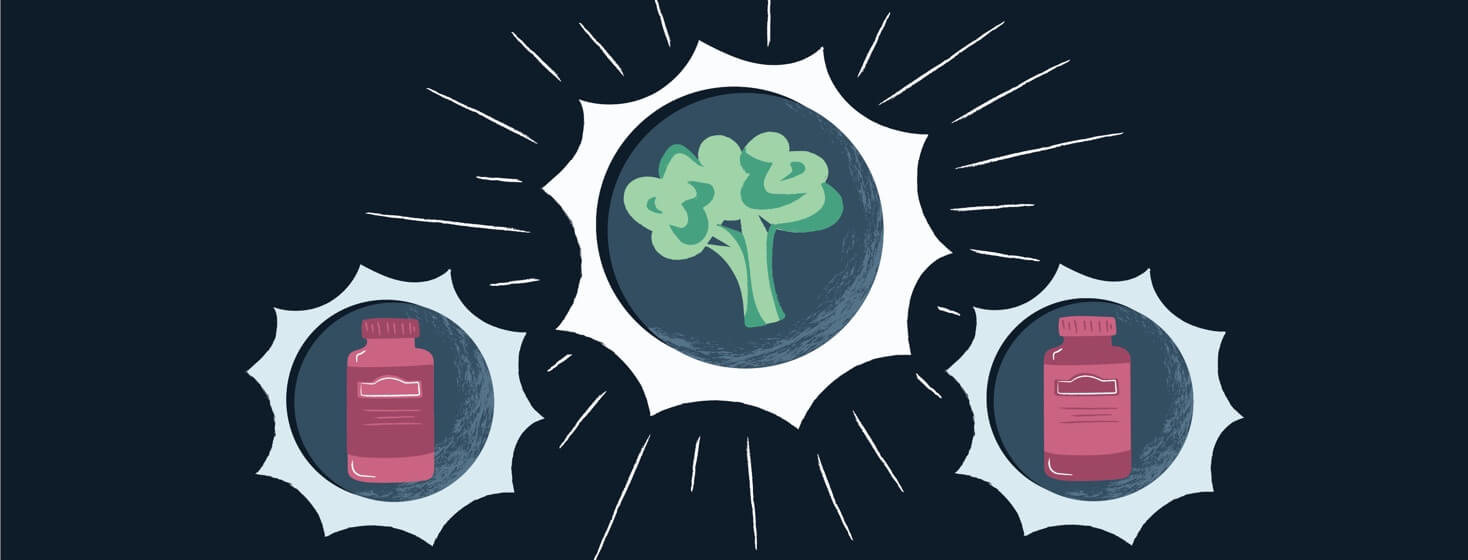Integrative Medicine and Bladder Cancer
Long before and well after I lost my first husband to bladder cancer, I believed in food as medicine and the potential value of integrative or complementary medicine such as certain herbs, supplements, yoga, etc.
Claims of a "cure"
But what I have noticed about some bladder cancer (and other cancer) patients is that they can become zealots about these things. I can’t tell you how many people — and I have heard this from other Stage IV cancer patients and caregivers, too — had a recommendation for a specific “cure,” whether it was eating broccoli or baking soda or taking certain vitamins. They swore it was a cure that the medical-industrial complex was suppressing or ignoring.
This was not helpful. While I recognize there are challenges and problems with Western medicine and that there might be other foods, supplements or activities that could help, I am cautious and skeptical about paying for any particular supplement or treatment unless there is respectable evidence to support it.
And I think it is daunting to patients and families — and the sicker the patient, the more daunting it is and the more desperate they are — to have these random supposed cures tossed at them.
I do believe in the value of nutritious food
But that said, I really do believe in the value of nutritious food — whether you are sick or well. It can help you feel better either way. And it might help you get well. Supplements might do the same. But there are also people out there wanting to sell you their magic supplement or supposed “cure” primarily to make money.
How can a patient and family find trustworthy information about integrative/complementary medicine?
1. Look to your treatment facility first
Many of the large NCI-designated cancer treatment centers have their own integrative medicine centers, too. If you are being treated already at a facility with one, take advantage of those resources. They typically include Western-trained doctors who also have training in integrative treatments. There may be specialized dietitians and treatments offered, such as acupuncture. Many times, these centers offer free classes and programs for cancer patients and their caregivers. Even if you are unclear what the offerings are all about, go there and ask questions. If you don’t live near such a facility, check out their websites. They often list many resources that will help educate you. You might be able to arrange a phone or long-distance consultation, too.
2. Ask an integrative medicine doctor
For supplements, ask an integrative medicine doctor which ones are best for you and which brands specifically they recommend. Vitamins and herbal supplements are not regulated by the Food and Drug Administration (F.D.A.) in the same way prescription drugs are. Therefore, there is no guarantee that the contents listed on the label are what’s inside. But some brands are better than others at ensuring purity and quality. An integrative medicine doctor can advise you on this.
3. Access to consumer lab review data
You might also consider paying a small amount per month for access to consumer lab review data on the quality/purity of given supplements. There are services that test products on behalf of consumers.
4. Peer-reviewed medical journal articles
For any potential non-traditional bladder cancer treatment claim, search for peer-reviewed medical journal articles to support such claims. They should be easy to find and likely reported in the press if the claims have been supported through research. Be cautious of any claimed treatment that has not been peer reviewed.
5. Have a response ready
Consider coming up with a ready response to people’s “helpful” suggestions for treatments or cures. If you think about it in advance, you will be ready when someone wants to share unsolicited “help” with you. Something as simple as “thank you for the input” can suffice. No need to answer their questions about your treatment choices or endure a lecture on their remedy. You can be polite but firm. Planning ahead can keep you from feeling caught off guard and also help keep perspective. People very often mean well and are truly trying to help. If you keep this mind, it makes it easier to respond to them from a place of gratitude instead of annoyance.
Integrative medicine has a lot to offer bladder cancer patients. But be sure to be thoughtful and do your homework before pursuing a given treatment.

Join the conversation